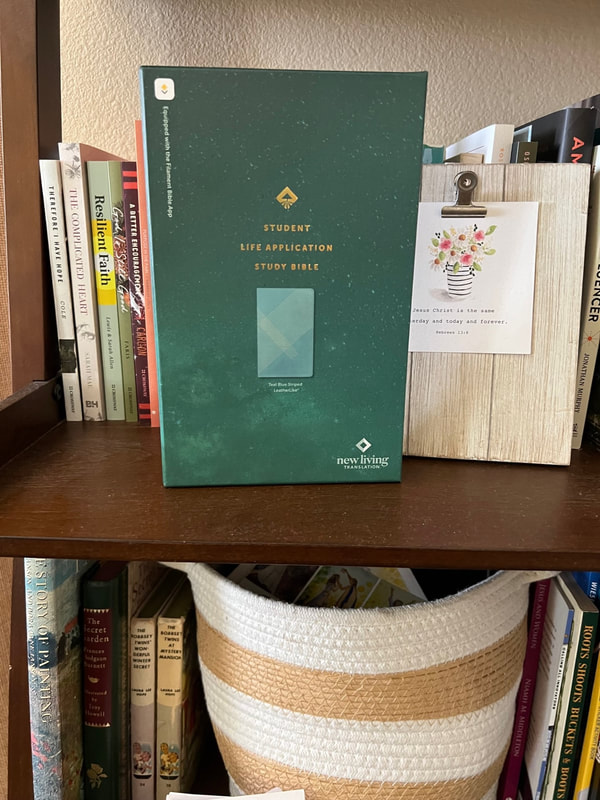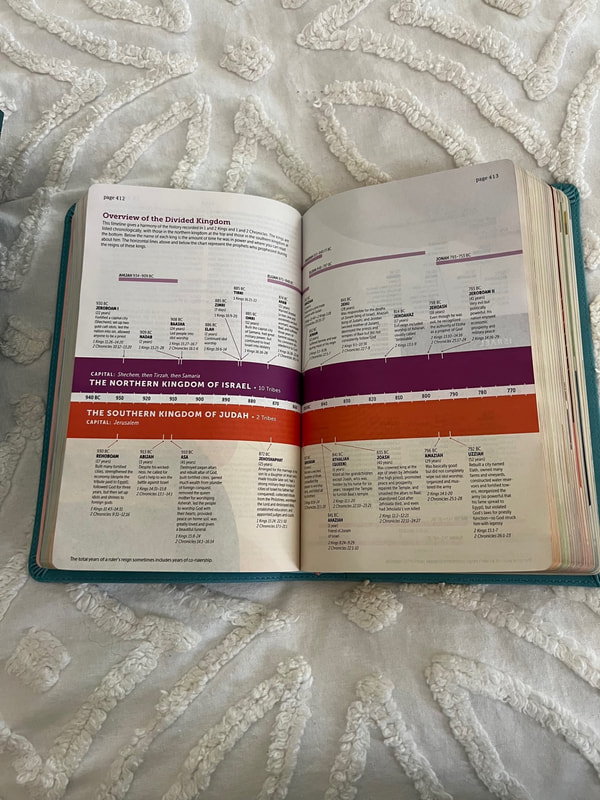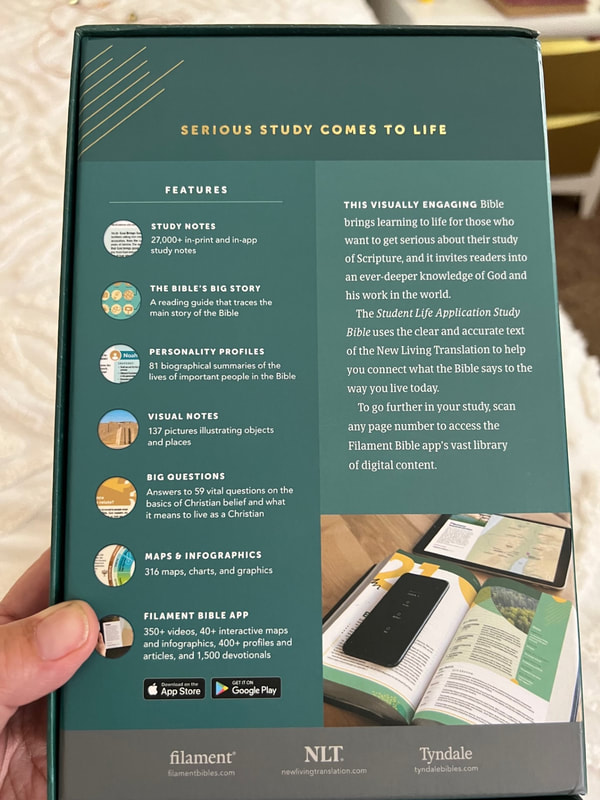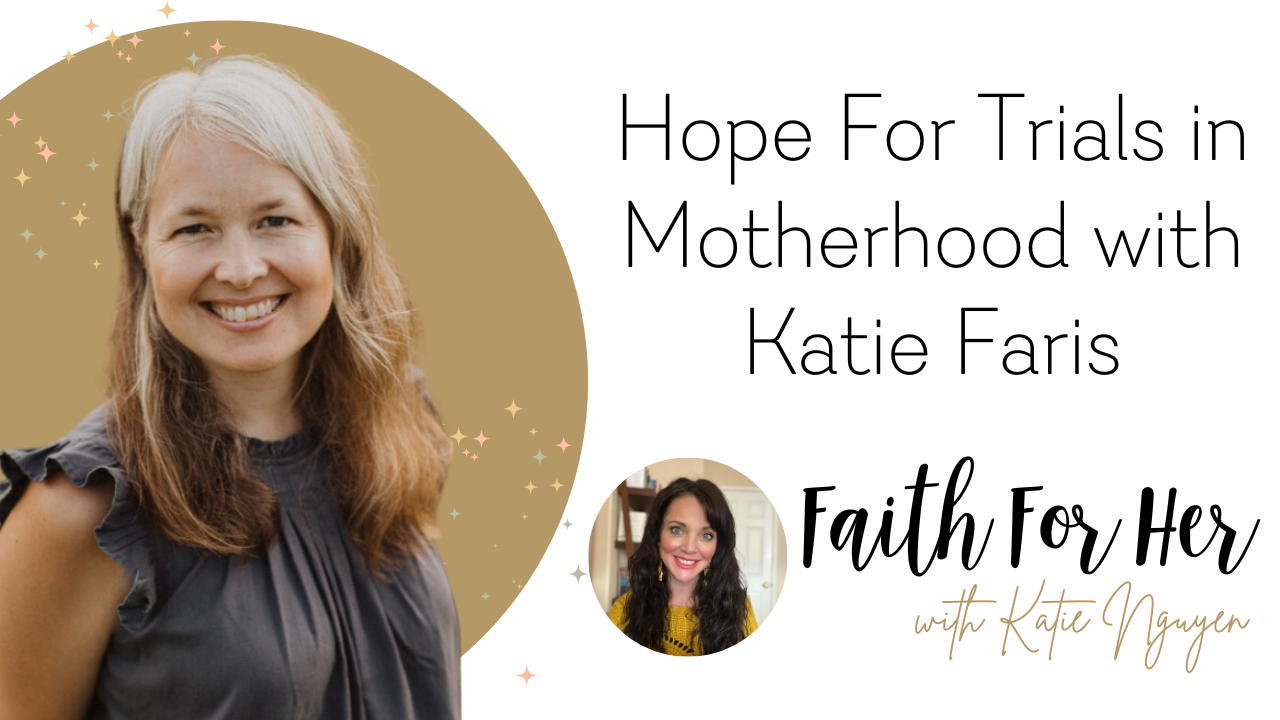WATCH THIS VIDEO TO SEE HOW THE APP WORKS!
Before I tell you about some of my favorite features I just wanted to let you know you can enter a contest to win a copy of your own HERE. ​Besides the fact this Bible matches my nightstand (such a bonus!) it is full of timelines, maps, devotionals, pictures, descriptions, and more. Before you even open the app you have so much at your fingertips! The app goes deeper in giving passage context, biblical history, devotional content, maps and videos to help you understand the passage. And it feels pretty cool to scan a page number and have all that pop up. Who said technology was bad? Not me!
ABOUT THE BIBLE:
The incomparable Student Life Application Study Bible is a work of serious scholarship, exquisite design, and a resolve for Scripture application in your daily life. Equipped with the Filament Bible app to help you go further in your reading and study of the Bible, the Student Life Application Study Bible in the New Living Translation will jump off the page and into your life with more than 27,000 on-page and in-app notes, over 350 maps, infographics, illustrations, and much more. Combining Bible study with full-color visualizations and technology, the STUDENT LIFE APPLICATION STUDY BIBLE will jump off the page and into your life. The Student Life Application Study Bible uses the clear and accurate text of the New Living Translation and is equipped with the Filament Bible app to help you go further in your reading and study of the Bible. This incomparable Bible is a work of serious scholarship, exquisite design, and a resolve for Scripture application in your daily life. Thank you Tyndale for sending me this Bible! All opinions are my own.
0 Comments
In our lives, we all face moments of profound loss and heartache, where it feels as though the weight of sorrow is too heavy to bear. But what if I told you that amidst the pain, there lies a glimmer of hope? Join me as I delve into a captivating conversation with the insightful author, Katie Faris, where we explore the transformative nature of grief and how it can shape our lives in ways we never thought possible. Throughout our discussion, we unpack the invaluable wisdom shared in Katie Faris' book, where she candidly delves into the complexities of grief and the profound ways it can impact our journey. Together, we navigate the depths of sorrow, exploring how it can deepen our prayer lives and lead us to a more intimate relationship with our Creator. We discuss the significance of biblical lament, where we not only find solace in expressing our honest emotions but also discover the power of agreeing with God that this broken world is not His design. But it doesn't stop there. As we journey further, we uncover the remarkable ways in which trials can shape our character, increasing our knowledge of God's unwavering love and faithfulness. We find inspiration in the stories of biblical figures who have endured immense suffering, realizing that our own trials equip us to bring comfort and compassion to others who are walking similar paths. If you've ever struggled to find hope amidst the depths of grief, if you've questioned God's plan in the face of heart-wrenching circumstances, then this conversation is for you. Below is an excerpt of my podcast conversation with Katie Faris. If you prefer you can listen to the whole conversation HERE or watch the video recording HERE. katie_nguyen: Last year, I had Natasha Smith on the Faith For Her Podcast and she talks a lot about grief and how to deal with grief. And she said it comes in waves and it's something that you learn to live with. But you can also find joy in your life still, and I would just love for you to share how you have dealt with ongoing grief in your day-to-day life while still finding joy and hope. katie_faris: Yeah, I do know Tasha. I enjoyed talking with her as a friend. Yeah, it's a great question, and I just want to slow down to think about what you're asking. It really has been a process. And now, even for someone who's reading my book, God Is Still Good, I talk about acknowledging the pain towards the beginning, and I talk about grief towards the beginning because I realize that there are some women who may be like, "That's just where they are," and you know, there is wonderful encouragement for them. But I think something we just have to sit in that grief season for a little while before we're ready to move on, and I don't want to rush that process. So there definitely was a season where the grief was something I had to work through, and I'm not saying that I've figured it out or anything, but I think I am in a different place now than I was in the beginning when things were new. I think part of what has helped me as a Christian to walk this path is reading Scripture. You know, I didn't have a whole lot of time to read Scripture in those days following my kids' diagnosis. There were a lot of new appointments to schedule, there were just a lot of things on our plate. But I started a list of go-to Bible verses. Maybe a friend gave me a Bible verse, or there was something that I heard or read, and I wrote them down, and I could look at them when I just needed something to sustain me. And I think another thing that I am learning in our sorrows, as moms, a lot of times there are lies that will come at us. And so I think having those Scripture verses has helped to anchor me to what is true, what God says when maybe my feelings say something different, and that is God's Word, I would say, has definitely been what has helped me to be able to move forward in my grief. And recognizing, you know, you already talked about Eve a little bit, this suffering in motherhood is bigger than just me. And even if I open my Bible, there are many stories of moms in Scripture who've gone through hard things, who've walked difficult roads. But there's also in Scripture this theme, as you've already mentioned, that there's a promised one coming, that there is hope. And Scripture tells the story of where we find our hope. It isn't even necessarily in the healing of a sick child. Our hope is found in Jesus and the hope that we can have through Him in the gospel. And so that has made all the difference. I don't know where I'd be without God's Word, and I think it has given me a context like there is suffering, but there's also hope. And so that gives me, I think, a place to be able to live today with hope that it's not always going to be like this. This isn't the end of the story, and I can know the Lord even on this journey, and He really is the way that I can, you know, not just be a sorrowful mom, but know that I have an identity that's bigger than that, knowing that I've been loved by my Savior. So those kinds of truths for me as a believer have made such a difference. I don't know where I'd be without God's Word, and I think it has given me a context like there is suffering, but there's also hope. And so that gives me, I think, a place to be able to live today with hope that it's not always going to be like this. This isn't the end of the story. - Katie Faris katie_nguyen: Yeah, that's huge. That perspective of who we are in Christ. So you are talking about taking the time to actually feel your grief and work through your grief. And you wrote in your book about godly lament. Can you share what godly lament is? How do we participate in that? katie_faris: Sure, so in writing the book, you know, I was looking at different dictionary definitions of what lament is, just plain old lament, not necessarily godly or biblical, and I was coming up with these definitions to talk about how it's wailing, it's pouring out of grief, there's a sound involved in it, there's a physical body involved in lament. But then I think the difference when we're talking about biblical or godly lament is that we are taking all of those raw emotions, all of those feelings, all of those things, and instead of now going to other places or having nowhere to go with them, we can bring them to the Lord. In Hebrews, it talks about how we can draw near to the throne of grace and find grace in our time of need. And so I love that, right in the middle of our story, right in our time of need, we can go to the Lord with all of the feelings and be honest with Him about what they are, acknowledging the trial, acknowledging maybe a circumstance or a hardship we're walking through, and even agreeing with God. You know, and saying, "You know, this really stinks." But also recognizing, like, this is because we live in a fallen world. Like, you know, Eve experienced, there is sin in this world. So I think that's where the agreement with God comes in, like God doesn't... you know, sin was not His design either. So I think it's going and saying, "You know, sin has really messed everything up. I don't like this." I think we can honestly voice those words. But then we can also ask Him to come in and do what only He can do. That He would come in and redeem our stories, that He would somehow work good out of these situations. And for me, biblical lament, especially in that season after my miscarriage, as I shared, you know, where I was working through grief for my miscarriage, but also for the other situations in our family, it was really a blessing to be able to take some extended time that my husband helped me carve out. Extended time to just go before the Lord, bring my questions, acknowledge even some of the lies that I was being tempted to believe in that time, and just be honest with the Lord about them. But then also to receive His comfort, knowing that He is still who He says He is. And I love... there's another verse in the Psalms about how we can pour out our hearts to the Lord at all times. And yeah, I just love the freedom that we have because He's our heavenly Father, and we are His daughters, that we can come before Him and find comfort, find peace when we pour out our hearts to Him. So maybe coming at it from some different angles. katie_nguyen: I think that's so helpful, and I think when I found in processing my own grief, is slowly as I process it with God, I come to understand the heart of my Father. Sometimes when things happen, it's really easy to blame God. Why did you let this happen? This is your fault. You could have stopped this. I think instead, when we partner in the godly grief that you talk about in your book, it's agreeing with Him that we don't like this broken world either. Like, it wasn't His design and it's really painful for us. And so, we can partner in that together, and as He changes our hearts, we have the ability to bring a little bit of His kingdom to Earth and how we can minister to other people. And you talk about that in your book too, that is some of the good that He can bring out of our hardships, being able to minister to others. And so, I do want to talk about some of the good things that can come out. Sometimes when things happen, it's really easy to blame God. Why did you let this happen? This is your fault. You could have stopped this. I think instead, when we partner in the godly grief that you talk about in your book, it's agreeing with Him that we don't like this broken world either. -Katie Nguyen katie_faris: Mm-hmm.
katie_nguyen: Of going through some of the hardships that we face in life, and what does God do in the formation of our character? katie_faris: Mm-hmm. katie_nguyen: You talk about this in your book quite a bit. Actually, you have some different ways that God brings good, starting on page one hundred of your book. So, do you want to talk about maybe just a couple of the ways that God can bring good from the trials that we face? katie_faris: Sure, yeah. I mean, in the book, the first one that I mentioned is trials deepen our prayer lives. So, you know, we're talking about even going to the Lord, biblical lament. We're talking with the Lord. That's the form of prayer, and that's redirecting. Mm, maybe not redirecting. It's taking all those things and bringing them to the Lord in prayer. I thought that was coming to mind while you were sharing that too. You know, I think you have so many questions. Why is God allowing this? But like you said, I think so much of what God wants to do is He wants to reveal Himself to us. So, I think the question may be even that we don't even know to ask sometimes is who. So, you know, why, what, when, where, how, but it's who. And I think God wants to show who He is, and as we engage in that process of spending time in prayer with Him, it's a way that our trials can work for good in deepening our relationship and revealing more of who God is to us, and enjoying that relationship with Him. Another one that I mentioned is trials increase our knowledge of God's character and word, which again, it's getting to know God better in the process of our trials when we turn to Him and also His word, where He reveals Himself in Scripture. As we turn to Scripture instead of to other things, which there are so many things we can turn to in our trial. But when we turn to the Lord and our trials, and we read His word, then we can get to know His heart better, that He is for us, not against us. And something else good that God can do with our trials, they can equip us to comfort others, like you mentioned again. There's a verse, I'll read it here. Second Corinthians 1:3-4 says, "God comforts us in all our affliction so that we may be able to comfort those who are in any affliction. For as we share abundantly in Christ's sufferings, so through Christ we share abundantly in comfort." And it's God's design that as we experience His comfort, that we would then go on and share it with others that we encounter who are struggling. katie_nguyen: Yeah, so I think for me, something that stood out when you were just talking about deepening our prayer lives and being able to take things to God, sometimes that can feel really hard, like as much as we're talking about it. And sometimes, you know, we can say, "Read Scripture. It's going to make you feel better." But when you're in the depth of your grief, sometimes it's really hard just to open your Bible or know where to go. Do you have insight on what you might offer someone who's in that space? katie_faris: Yeah, no, I hear you. I think when I'm in those seasons, I love to go to the Book of Psalms because they are written as prayers. So, even if I don't have words to pray, I can read those Psalms and I can put myself in the place of the speaker, and I can read those words to the Lord. And many of them are psalms of lament, even like they're very honest words. So that's a place that I have to go to. I've also... I mean, and there's a whole book of Lamentations. But yeah, Psalms would be my go-to. Another book of the Bible, though, that's been really helpful to me in my seasons of sorrow, has been the book of Job, the story of a man who experiences extreme loss. And he doesn't understand why this is happening to him. But as we read the book, it shows us what's happening behind the scenes. And there's this very interesting conversation that's happening between the Lord and Satan, where, you know, it's very interesting. I mean, I don't know that Job ever understood what was happening behind the scenes of his trial, but I think it gives us insight that God was still in control, God was still setting the boundaries, setting the limits of the extent to which Job would suffer. And I also love the end of the book, it has been such an encouragement to me as a suffering mom, where Job gets to the other side of pouring out his heart, his thoughts, his questions, and God reveals Himself to Job in a really powerful way. And Job, at the end, he's basically like, "I just put my hand over my mouth." You know, "I had heard of you, but now I know who you really are, and like, I'm just going to cover my mouth up," because he's so in awe of who God is. And I think that just... I don't know, that story just speaks so much to my own soul. Like, I don't have to understand everything that's happening. I just need to know the one who does and know that I can trust Him. Listen to the full episode.  Parenthood is a journey that is full of challenges and struggles. From the sleepless nights of infancy to the teenage years of rebellion, raising children can often feel overwhelming and exhausting. As parents, it can be easy to feel like we're failing or that we're not doing enough. However, as Christians, we have hope and strength in God's Word to help us navigate the struggles of parenthood. In this blog, are some Biblical principles that can help us deal with struggles in parenthood. Seek God's Wisdom Proverbs 2:6 says, "For the Lord gives wisdom; from his mouth come knowledge and understanding." When we face struggles in parenthood, one of the best things we can do is seek God's wisdom. He knows our children better than we do and can guide us in how to raise them in a way that honors Him. We can ask for His guidance through prayer and study of His Word. Remember that God is in Control Psalm 127:3 says, "Children are a heritage from the Lord, offspring a reward from him." As parents, we have the privilege and responsibility of raising our children, but ultimately, God is in control. We can trust that He has a plan for our children's lives and that He will guide them according to His purposes. When we feel overwhelmed or powerless in our struggles, we can remember that God is sovereign and trust in His care for our children. Prioritize Relationship Over Rules Ephesians 6:4 says, "Fathers, do not exasperate your children; instead, bring them up in the training and instruction of the Lord." While it's important to set boundaries and discipline our children, it's equally important to prioritize our relationship with them. When we focus only on rules and consequences, we can easily become disconnected from our children and miss opportunities to teach them about God's love and grace. We can prioritize relationship by spending quality time with our children, listening to them, and showing them love and compassion. Practice Forgiveness Colossians 3:13 says, "Bear with each other and forgive one another if any of you has a grievance against someone. Forgive as the Lord forgave you." In parenthood, we will inevitably make mistakes and so will our children. When we face struggles and conflicts, we can practice forgiveness and extend grace to our children, just as God has forgiven us. This doesn't mean we ignore harmful behavior or let our children off the hook, but it means we approach discipline and conflict resolution with a heart of forgiveness and love. Lean on God's Strength Philippians 4:13 says, "I can do all this through him who gives me strength." Parenting is not easy, and there will be times when we feel like we can't handle the struggles we face. In those moments, we can lean on God's strength and ask for His help. He promises to give us the strength we need to persevere and overcome the challenges of parenthood. Motherhood is a challenging and rewarding journey. We have the hope and guidance of God's Word to help us navigate the struggles we face. We can seek God's wisdom, remember that He is in control, prioritize relationship over rules, practice forgiveness, and lean on His strength. May we turn to Him in our struggles and trust in His grace to guide us as we raise our children. Connect With Me Mistakes are an inevitable part of life. We all make them, no matter how hard we try to avoid them. When we make mistakes, it can be easy to feel overwhelmed, ashamed, or even hopeless. We may feel like we've let ourselves and others down, and we may struggle to forgive ourselves. However, as Christians, we have hope in Jesus Christ, who covers our sins and offers us a path to bounce back from our mistakes. The Bible is full of stories of people who made mistakes and experienced God's forgiveness and restoration. One such story is that of David, who committed adultery with Bathsheba and had her husband killed to cover it up. When Nathan the prophet confronted David about his sin, David was overcome with guilt and remorse. However, when he repented and turned to God, God forgave him and restored him to his position as king. Another example is that of Peter, who denied Jesus three times before his crucifixion. Peter was devastated by his mistake, but Jesus forgave him and even entrusted him with the task of building His church. In both of these examples, we see that God is willing to forgive us when we make mistakes and offer us a path to overcome them. One of the most encouraging verses in the Bible is found in 1 John 1:9, which says, "If we confess our sins, he is faithful and just and will forgive us our sins and purify us from all unrighteousness." This verse reminds us that no matter how big our mistakes are, we can turn to God and receive His forgiveness and cleansing. We don't have to live in shame or regret, but can instead experience the freedom and joy of God's grace. Jesus also offers us hope despite our mistakes through His death and resurrection. When Jesus died on the cross, He paid the penalty for our sins so that we can be forgiven and reconciled to God. As Paul writes in Romans 8:1, "Therefore, there is now no condemnation for those who are in Christ Jesus." This means that when we place our faith in Jesus, we are no longer defined by our mistakes, but by His righteousness. We can trust in Him to cover our sins and give us the strength to bounce back and move forward. Bouncing back from mistakes is not easy, but as Christians, we have hope in Jesus Christ. He offers us forgiveness, cleansing, and restoration when we turn to Him and confess our sins. We don't have to live in shame or regret, but can instead experience the freedom and joy of His grace. Let us turn to Him today and trust in His power to help us recover from our mistakes. Connect With Me |
About meI'm just a girl, standing before my God, knowing that He loves me and wanting others to know that love too. Archives
March 2024
|







 RSS Feed
RSS Feed

